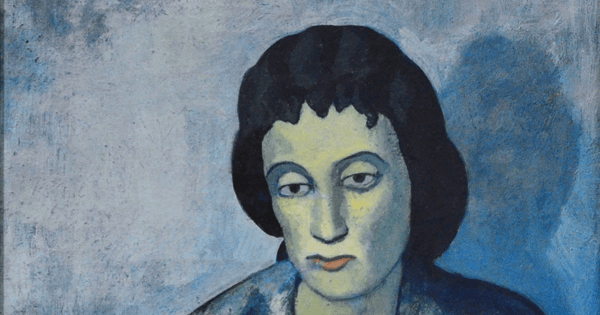
I am always puzzled when I hear people say that they are avoiding a certain book or movie because it promises to make them sad. “I’m not in the mood for a downer,” one friend tells me. Me, I am always in the mood for sad art. When I was a teenager, I sought out anything that would put me in touch with the gravest, deepest, and most lugubrious chords. Bach’s Passions, Robert Bresson’s Diary of a Country Priest, King Lear, Rogier van der Weyden—these were my pillows. Dostoevsky was my god. Later on, I was drawn to Kenji Mizoguchi’s Ugetsu and Sansho the Bailiff, films that brought me to a tragic sense of life. The deaths of the father and sister in Satyajit Ray’s Apu trilogy moved me unutterably. Robert Burton’s Anatomy of Melancholy—the title alone enticed. I have to ask myself: why were these dark descents so consoling? And by what mechanism was I able or even inclined to transform the worst news about the human condition into the most solacing and transcendent?
I see now that if I can touch bottom in safe surroundings, like an inky movie theater or at home holding a book in my hands, and more importantly, if these negative truths are delivered with sublime shapeliness, such that I can be in awe of their artistry, then that would take the curse off. I remember reading Thomas Hardy’s Jude the Obscure the first time, and coming to the end, being transported by the sensation of understanding—what? The harrowing mystery of life? Hardy has often had that effect on me. I got so angry at my wife at the time, who asked me a mundane but reasonable question about where we should eat, just as I was entering that portal of tragic comprehension.
Artfully executed sad art still makes me cheerful. I seek it out whenever I can. At the same time, I have had a love affair from adolescence onward with the ironic artists whose counsel is not to take yourself so seriously. I love the playfully self-mocking fictions of Italo Svevo and Machado de Assis, the Italian film comedies of Dino Risi and Alberto Lattuada, Diderot’s Jacques the Fatalist, Max Beerbohm’s mischievous essays. They form a necessary counterweight to the solemnity and seriousness of the tragedians. Paradoxically, the ironists may have a darker, more sardonic vision of life than the tragedians, because they deny their audiences the release of climactic sorrow. Their reassurance in giving out the worst news is that one can only laugh.
It was a sign of aging, I suppose, when I took on Montaigne as my current master. The extreme intensities I craved as an adolescent suddenly struck me as overdone: when I tried to reread Dostoevsky, it all seemed a bit hysterical. Must Raskolnikov and Nastasya Filippovna carry on so? I could still enjoy the Underground Man because he trafficked in bitter ironies, but even he sounded a little shrill. Montaigne, whose advocacy of equilibrium struck me, when I read him the first time in college, as self-satisfied, inane, lacking an edge, now seemed the height of wisdom. I embraced his sense of balance, proportion, even self-acceptance. “The greatest sin is to despise one’s being,” wrote Montaigne. Self-hatred suddenly seemed a form of vanity: Who are you to think you’re so despicable? Get a grip. The adolescent me was impatient to have the outcomes resolved: Is life going to be triumphant or catastrophic? If the latter, should I commit suicide? Middle age conditions you to accept that nothing is going to be resolved, nothing is certain, and that’s somehow all right. So I have sought a personal aesthetic that will allow for sadness, comic irony, and equilibrium.
One thing has never changed: I’ve always been a fan of the blues. I have only to listen to a Bessie Smith or John Lee Hooker recording to feel that life is all right. What Ralph Ellison wrote about it can’t be bettered: “The blues is an impulse to keep the painful details and episodes of a brutal experience alive in one’s aching consciousness, to finger its jagged grain, and to transcend it, not by the consolation of philosophy but by squeezing from it a near-tragic, near-comic lyricism.” In short, the blues offers up agony (it hurts so bad), worldly self-mockery (because you should have none better, you fool), and equilibrium (the sun’s gonna shine on my backdoor someday) simultaneously, in an economically lyrical form. It is the perfect three-in-one vitamin pill.

